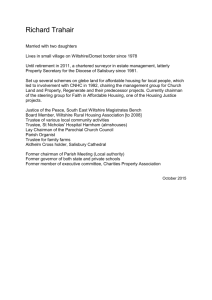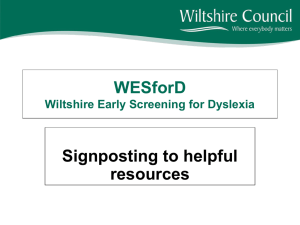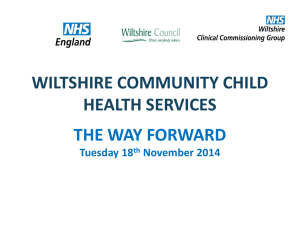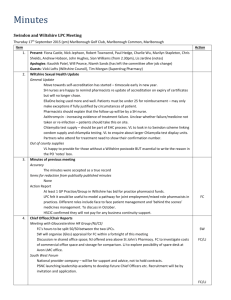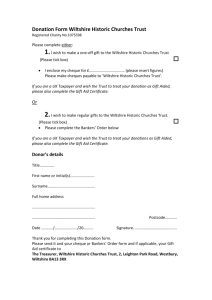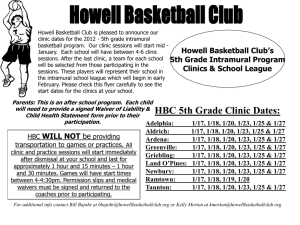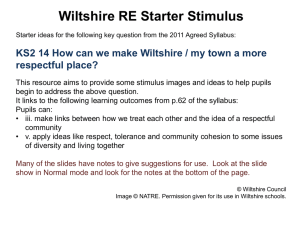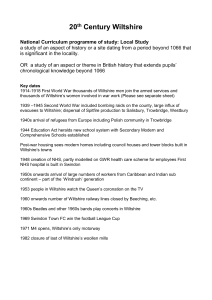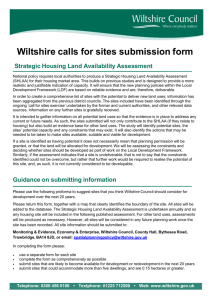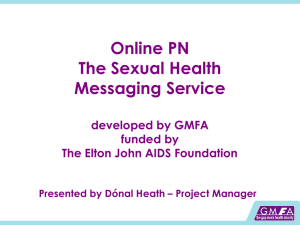FFF Workshop 27.03.14 Wiltshire SO
advertisement
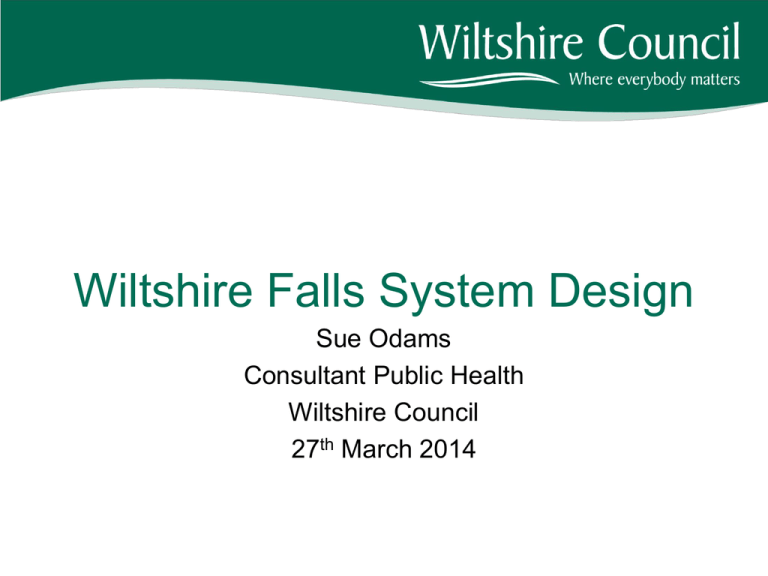
Wiltshire Falls System Design Sue Odams Consultant Public Health Wiltshire Council 27th March 2014 Presentation • • • • • • Background- Wiltshire Falls in Wiltshire Current System BVHC Work Current position Future Background • Large county • Population: 470,981 (2011 Census) • Retirement age population: – 18.2% Wiltshire – 19.6% South West – 16.3% England – Ageing fast! Falls in Wiltshire • Falls and injuries: – 65+: better than England average – 65-79: better than England average – 80+: not significantly different from England average • Hip fractures 65+ and 80+: – Not significantly different from England average GP- Risk Assessment Medical Falls Clinic NT Falls Clinic Fracture Clinic Hospital A&E RHRD Fracture Liaison Clinic NT Falls Clinic Admission Medical Falls Clinic Ambulance NT Falls Clinic Risk Assessment GP SurgeryRisk Assessment Patient Fall At Home No referral Social Care/District Nurse GP- Risk Assessment Call 111 111 Algorhythm Strength and balance classes 1:1 at patient's home Medical Falls Clinic 1:1 at patient's home Strength and balance classes Current Wiltshire Falls System • Communication and Documentation: – ‘Passport’ – IT systems – Whose responsibility? • Patchy coverage and multiple referral possibilities: – Neighbourhood Teams – Medical Falls Clinics – Community Falls Clinics – Fracture Liaison Service? Better Value Healthcare • Public Health Lead • Core Group – Public Health – CCG – Healthwatch – AWP – Social Care • 5 Domains • Falls Group BVHC Principles • • • • • • • • • Define the scope of the system Define the population to be served Reach agreement on the aim and objectives of the service For each objective to find one or more criteria For each of the criteria identify levels of performance that can be used as quality standards Identify all the resources used in the system, thus creating a system budget Define all the partners so that they need to be engaged in a Clinical Network Produce a system specification Prepare a plan to build the system BVHC Falls Workshops • First – BVHC philosophy – Scope – Population – Objectives • Second – Revamp of objectives • Third (9th April) – Development of criteria Current Situation • • • • • • • • • Define the scope of the system Define the population to be served Reach agreement on the aim and objectives of the service For each objective to find one or more criteria For each of the criteria identify levels of performance that can be used as quality standards Identify all the resources used in the system, thus creating a system budget Define all the partners so that they need to be engaged in a Clinical Network Produce a system specification Prepare a plan to build the system Wiltshire Falls Group Objectives • • • • Increase awareness of falling, promote physical activity in older people- increase number of people self accessing services To identify those at high risk of significant falls (incorporating osteoporosis) and appropriately manage To diagnose and treat quickly (need timeframe) accurately (on clear pathway) – Those who have fallen (known and unknown) – Those at risk of falling In order to: – Reduce the number of #NOFs – Maintain the independence those who have fallen/at risk of falling in their own home/place of residence – Reduce the number of people calling ambulance service having fallen – Reduce the number of people admitted to nursing homes as a result of falling – Improve quality of life- those at risk and those who have fallen (confidence etc) Future • • • • • Understanding of system Patient pathway Monitoring and evaluation of system Fit into other priorities and objectives? Other BVHC domains
